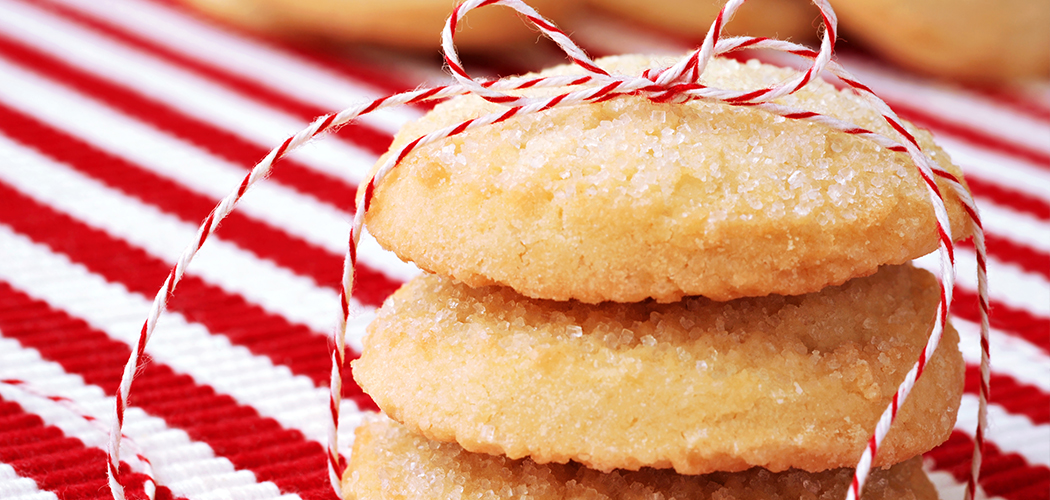[title subtitle=”words: Marla Cantrell”][/title]
It was the first week of December, and we’d already been getting Christmas gifts at the city water office where I work—homemade divinity, cookies with strawberry jam centers, sugared pecans. Our customers brought the sweets, sweet people themselves who paid their bills without complaint. The wine, though, came from Julius Brooks, who owns the canning plant that uses the most water in town, tons of the stuff, whole rivers of it. Julius got a discount on his bill for bringing jobs to town, and I disagreed with the perk. Widow Tanner, who, at eighty, did laundry for a living and could have used a cheaper bill, for example, didn’t get a break, a point I argued during a staff meeting. But I was just the lowly clerk, so my opinion didn’t count for much.
Anyway, Julius had visited eastern Tennessee recently and brought us back a case of local wine, so smooth it went down like Kool-Aid.
“Been to the foothills of the Smoky Mountains,” Julius said when he stopped by. He was wearing a black cashmere knee-length coat, the button at his belly straining, a gray cowboy hat, a red tie. I knew if he took off the hat, his silver hair would stand up like a rooster’s comb. He was about ten years older than me, best I could tell, and not really handsome, but sturdy looking, substantial.
“Took a tour of Spout Springs Winery way up there on a mountaintop in a little town called Blaine. Fell teetotal in love with this wine called Kate, named after the owners’ cat, a gray fur ball that climbed right up on my lap and watched the sun set with me.” Julius was tugging off his black leather gloves. “You ever been to Tennessee, Minnie?”
“Never been, Mr. Brooks,” I said, and he said, “Now, Minnie, you know I’d rather you called me Julius.”
It was nearing five o’clock, the velvet light of evening already falling. Above the door, we’d hung a wreath made of green glass water bottles affixed in a circle with bailing wire, a red bow at the top. Twinkly lights flashed around the doorframe. Lavelle, my boss, stepped around the corner, said hello to Julius and announced she was heading home. “Brought y’all some wine,” Julius said, and Lavelle waved her hand, a dismissal, just short of a rebuke. “I’m a washed-in-the-blood Southern Baptist,” Lavelle said. “Never touched a drop of liquor. Never will.”
Julius looked at his cowboy boots, their shine reflecting the nearby Christmas lights. “Never meant no harm. Plus, I know plenty of Baptists who imbibe.”
“Well, at my church we’d vote ‘em out in a New York minute, but that’s neither here nor yonder,” Lavelle said. She seemed to take in Julius for a second, her head tilting just a bit. “But thank you for thinking of us.” She pointed at me. “Minnie’s been known to order a margarita at our yearly meeting in Little Rock, so I’m sure she’s game.”
I spoke up, ready to break the tension that filled every corner of the room. “I sure would, Julius. I have a couple of glasses back in the breakroom. Let’s you and me open a bottle.”
“Y’all go right ahead,” she said. “I’m heading home to the Mister.”
It was a Friday afternoon. All I had waiting at my apartment was a stack of dirty dishes and a white cat named Mr. Alabaster who sometimes welcomed me and sometimes bit my ankle. I pulled two tumblers from the cabinet and set them on the table.
Julius poured the wine, swirled his in his glass and took a sip. I was itchy to drop a few ice cubes in mine—that’s how I drink it at home—but I resisted. The wine was sweet, the way wine should be. I tipped my glass, tasted the wine, closed my eyes against the perfection of it.
“You really think Lavelle’s never drunk a drop?” Julius asked.
“She won’t even take cold medicine if she thinks it might have alcohol in it.”
“How does she get past the scripture about turning water
into wine?”
“Says it wasn’t turned into wine. Says it was straight-up grape juice.”
Julius smiled. “I love people like Lavelle. They don’t never doubt a thing.”
“Yeah,” I said, “she’s a peach.” I was thinking about how the hard corners of her beliefs kept her at a distance even though we’d worked together for seventeen years.
Our office is close to the highway, and in the background, I could hear the whoosh of tires on the pavement. The sound system was playing “Silver Bells,” a song that took me back to a Christmas concert when I was in fifth grade. I’d worn a silver dress, silver shoes, a red poinsettia blossom in my hair. “I love that song,” I said.
“I got a lot of money,” Julius said, the sentence coming out of nowhere. He spoke faster. “I own other things besides the canner. A Rite Aid in Kentucky. A Kentucky Fried Chicken in Ohio.” When he said Ohio, he pronounced it Oh-High-Oh.
My glass was nearing empty, and Julius poured more wine for both of us. “I own a 1994 Honda from Japan,” I said. “That’s about the extent of my holdings.”
“My first car was a 1973 Pinto wagon. My payments were fifty-seven dollars a month. I was eighteen, still living in Jasper where I was born.” Julius waved his hand in a half circle. “My people were farmers all the way back. Always lived near the Buffalo River. Loved the water. Loved the land.”
“Did your family have money?”
Julius laughed, and his cheeks turned into apples. “Not a penny extra, but they knew how to work. And they understood that you take care of what you love.”
I’d eaten lunch at eleven, and now, on my empty stomach, the wine was loosening my joints. I leaned in and asked, “And what did you know, Julius?”
Julius’s voice was a low rumble. “I know how to ask for what I want.”
“I can’t ask for anything, not even for someone standing on my toe to get the hell off it,” I said.
“Try with me,” Julius said. “Ask me for something.”
I stood up, walked to the refrigerator, opened the freezer door and grabbed a handful of ice. I dropped the cubes in my glass, and sat back down. “There’s this old widow lady, Emma Tanner, who takes in laundry to keep the lights on.” I pointed toward the north wall. “She lives out on Old Graphic Road. Well, anyway, she could use a little help.”
Julius leaned back in his chair. He’d unbuttoned his fancy coat, and I could see his initials embroidered on the pocket of his white starched shirt. “If a genie ever shows up here and offers you three wishes, you’d best call me first, Minnie. I suspect you’d give ever one of ‘em away.”
I met his eyes, emboldened by the sparkling lights overhead, and the electric feeling that was building in my chest. “Is that a no, Julius Brooks?”
The parking lot is made of gravel, and just then I heard the crunch of it, maybe footsteps, I thought, and stood to look out the window. A deer—a buck—was walking by, its antlers catching the glow from the security light. It moved the way royalty might, as regal as a king, off into the woods behind the office.
I turned to look at Julius, who was looking back at me. “Minnie,” he said, “I wouldn’t think of saying no to you.”
A memory of what it felt like to flirt flashed across my brain. How long had it been since I’d been on a date? Eight years? Ten?
The breakroom was stocked with cans of tuna, peanut butter, nearly-fresh bread. “Julius,” I said. “You and I have a situation. I can’t let you leave here after having more than a glass of wine. I could make us a sandwich, some coffee, and we could talk for a while. And while we do it, we could figure out how you’re going to help Widow Tanner.”
Julius grinned, and in grinning, I could see all the years that led to this one night in December. His eyes were icy blue with flecks of darker blue surrounding the pupils. His hands were rough, but his nails were neat and white. He said, “Or we could call a cab, and you and me could head up the hill to Fayetteville, see the Christmas lights on the Square, ride one of the camels they bring in every year, get us a bite to eat.”
I had been in a cab only once in my life. On my honeymoon, when me and Edwin had gone to Chicago. I had not liked Chicago, but I’d loved Edwin, God rest his soul. What would he say if he could see me now? His wife, well, widow, acting like a schoolgirl?
I stared out the window, looking at the moon. There was a fuzzy ring around it, a halo of spun sugar. “Call the cab,” I said.
The taxi took thirty-five minutes to arrive, and all that while Julius and I sat side by side sipping coffee, our feet balanced on the two empty chairs on the other side of the table. He held my hand, and the warmth of it was like the glow of a fireplace on a freezing night. He set his phone to record, and he and I listed all the things he could buy for Widow Tanner, all the things he’d have delivered on Christmas morning.
I could imagine her waking up, the world looking the same as it did any other morning. I could imagine her sitting at her small table with a cup of tea, the local news on, maybe a load of someone’s laundry waiting to be folded in the cubby where her washer and dryer sat.
Then Santa would knock on her door, his sack filled to the top with gifts just for her. She’d probably touch her throat, push back a lock of white hair, button the top button on her robe. Then she’d smile so wide the entire universe would warm a little. I could see it so clearly, the incredible beauty of it. My eyes misted up. I leaned my head against Julius’s broad shoulder and let the tears fall across his perfect shirt, his tidy monogram, his heart that I was just beginning to know. I felt his hand on the top of my head, and it seemed as if I was being brought back to life. Maybe I was. Maybe I was being born all over again.




